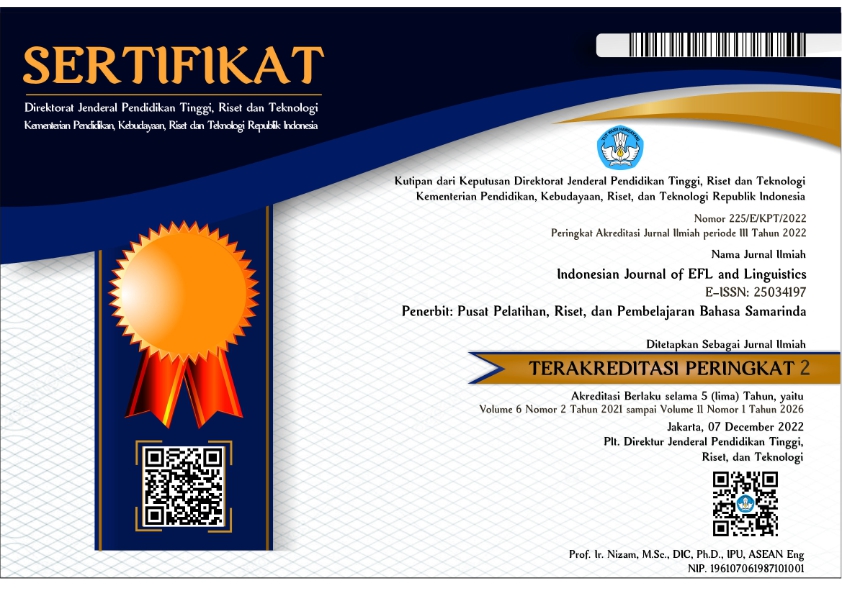Unveiling Power Dynamics in Online ESL Conversation Classes: A Critical Classroom Discourse Analysis of the IRF Pattern
Abstract
This study explores power dynamics in online ESL conversation classes through the lens of the Initiation-Response-Feedback (IRF) pattern, a widely used discourse structure in classroom interactions. The research aims to examine how IRF shapes tutor-student interactions, influences student participation, and impacts learning performance. Utilizing a qualitative research approach, specifically Critical Classroom Discourse Analysis (CCDA), the study analyzes recorded ESL conversation sessions from online platforms to identify patterns of discourse control, student agency, and negotiation of power. The Findings reveal that while the IRF pattern facilitates structured learning, it also reinforces power asymmetry, with tutors predominantly controlling discourse flow and topic management. However, variations in feedback mechanisms, such as open-ended questioning and elaborative responses, create opportunities for more balanced interactions. The study highlights the need for ESL tutors to adopt more inclusive discourse strategies that encourage student-led discussions and minimize hierarchical barriers in online learning environments. The implications suggest that modifying the IRF structure to allow greater student participation fosters communicative competence and enhances learner confidence.
Copyright (c) 2025 Indonesian Journal of EFL and Linguistics

This work is licensed under a Creative Commons Attribution-NonCommercial-ShareAlike 4.0 International License.




